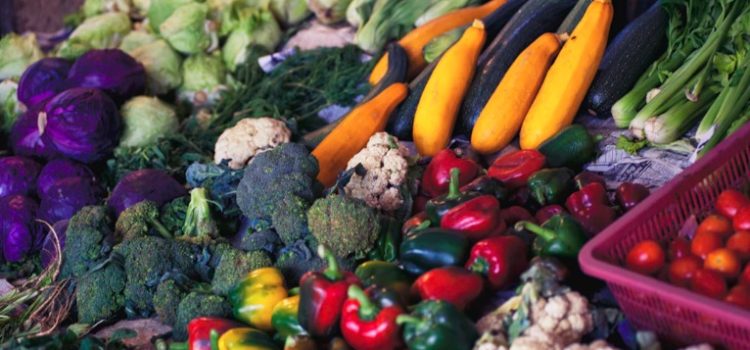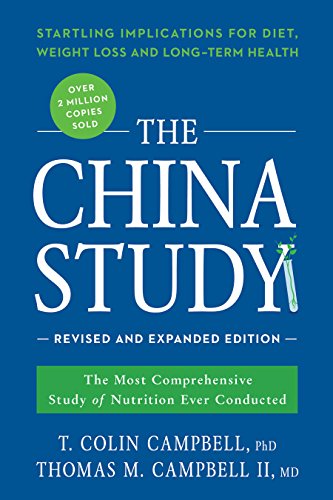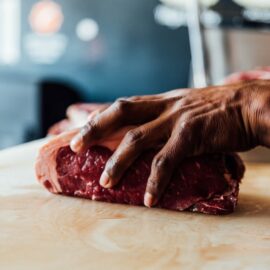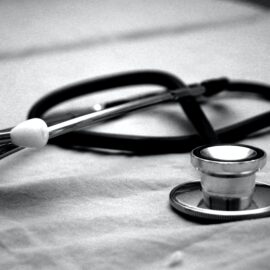

This article is an excerpt from the Shortform summary of "The China Study" by Colin Campbell. Shortform has the world's best summaries of books you should be reading.
Like this article? Sign up for a free trial here .
Are high-carb diets healthy? Recent dietary trends have taught us to shun carbs, but we also know that high-carb foods like fruits, vegetables, and grains are good for you. How do you know whether a low-carb or high-carb diet is healthiest?
Studies show that a high-carb diet may be the healthiest out there. We’ll cover why low-carb diets are unhealthy and how you can transition to a healthy high-carb diet.
The Problems With Low-Carb Diets
Before we examine the benefits of a high-carb diet, let’s look at some of the pitfalls of a low-carb diet.
Even though the high-fat, high-protein, low-carb diet espoused by Robert Atkins has been widely discredited (more research coming next), our food culture remains highly influenced by it. Books like The Zone Diet, The South Beach Diet, Grain Brain, and The Paleo Diet continue to tell us that carbs are bad and fat is good.
A common argument in these books is that the low-fat diets of the past didn’t work. But Americans ate 13 more pounds of fat, per person, in 1997 than they did in 1970. Although we spent much of the 90s reading and talking about low-fat diets, we never really tried them.
Let’s look at the research on low-carb diets to quell our fear of carbohydrates.
Low-Carb Diet Studies
A meta-analysis of 17 studies (with a total of 272,216 subjects) showed a 31% increase in deaths for people eating a low-carb diet.
Studies performed by the Atkins Center itself showed that 68% of people on its diet reported constipation, 63% had bad breath, and 10% experienced hair loss. The center also found increases in kidney stones, vomiting, missed periods, high cholesterol, vitamin deficiencies, and calcium in the urine.
How did Dr. Atkins address these known side effects of his diet? He recommended his patients each take over 30 supplements a day to rectify these “common” dieting issues.
Further, Paleo subjects, who also eat a high-fat, low-carb diet (they eliminate carbs from grains and legumes), show increased blood cholesterol and triglycerides.
The Benefits of a High-Carb Diet
Conversely, high-carb diets have been shown to reverse heart disease and diabetes, aid in weight loss, and prevent chronic diseases. This may be because complex carbohydrates contain large amounts of vitamins, minerals, and accessible energy.
But these benefits only come from complex carbohydrates from whole foods like vegetables, fruits, and whole wheat pasta. Eating refined carbs in white pasta, white bread, candy, and desserts clearly won’t make you healthier.
What to Eat on a Healthy High-Carb Diet
- Eat as much as you want of fruits, vegetables, legumes, mushrooms, nuts, and whole grains (this includes whole-grain bread and pasta).
- Limit refined foods (white bread, cakes, pastries, crackers), fish, and added oils (including corn, peanut, and olive oils).
- Avoid meat, poultry, dairy, and eggs.
Four Suggestions for Transitioning to a High-Carb Diet
Following these suggestions will help ease your transition into a high-carb diet. The healthiest high-carb diets contain little or no animal products and rely on plant foods for protein, energy, vitamins, and minerals.
Suggestion #1: Eat delicious foods. You won’t commit to a high-carb diet, or any diet, if you’re not interested in what you’re eating. Explore different restaurants and try new recipes to find meals that you love. Asian and Middle Eastern restaurants often offer many plant-based options. They also use spices in unique and exciting ways that will make you forget to miss the meat.
Suggestion #2: Eat a variety of foods. This is critical both for getting the nutrients you need and staying interested in the diet.
Suggestion #3: Don’t go hungry. Even if you’re trying to lose weight, eat enough. On a plant-based, high-carb diet, you’ll probably lose weight without restricting calories, and being hungry makes you vulnerable to falling back into your old eating patterns.
Suggestion #4: In the beginning, don’t be afraid of spending money. Cutting meat and dairy means cheaper grocery bills in the long run, but at the beginning of your high-carb diet journey, you may find that the process of trying new foods and figuring out what you like involves spending more money. This is temporary, and it’s worth it.
As you transition to a high-carb diet, know that an upset stomach is normal, especially if you’ve been eating a low-carb diet. As your digestive system adjusts, you might not feel well. This is normal and won’t last long.
Summary of Recommendations
- Eat whole foods.
- Eat high-carb, rather than low-carb, diets. But make sure you’re getting your carbohydrates from whole, not refined, foods.
Eating a high-carb diet is healthier than eating a low-carb diet if you get your carbs from whole foods rather than refined and packaged products.
———End of Preview———

Like what you just read? Read the rest of the world's best summary of "The China Study" at Shortform . Learn the book's critical concepts in 20 minutes or less .
Here's what you'll find in our full The China Study summary :
- Why animal proteins (meat, milk) might cause cancer, diabetes, and other diseases
- Why the medical institution is structured to hide the truth about disease and food
- The precise diet you'll need to eat to live longer and feel happier






